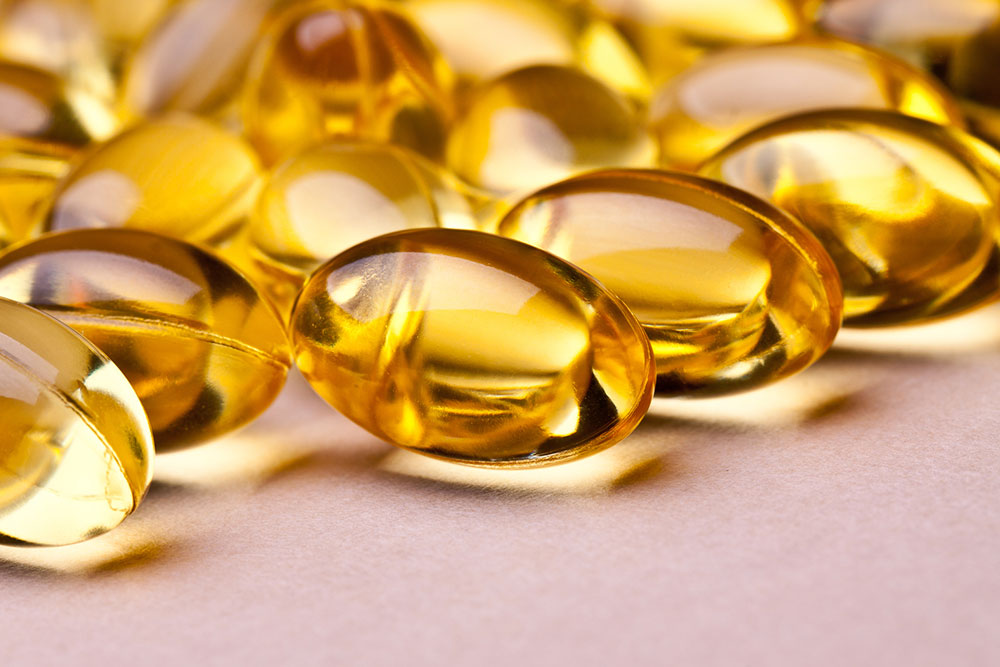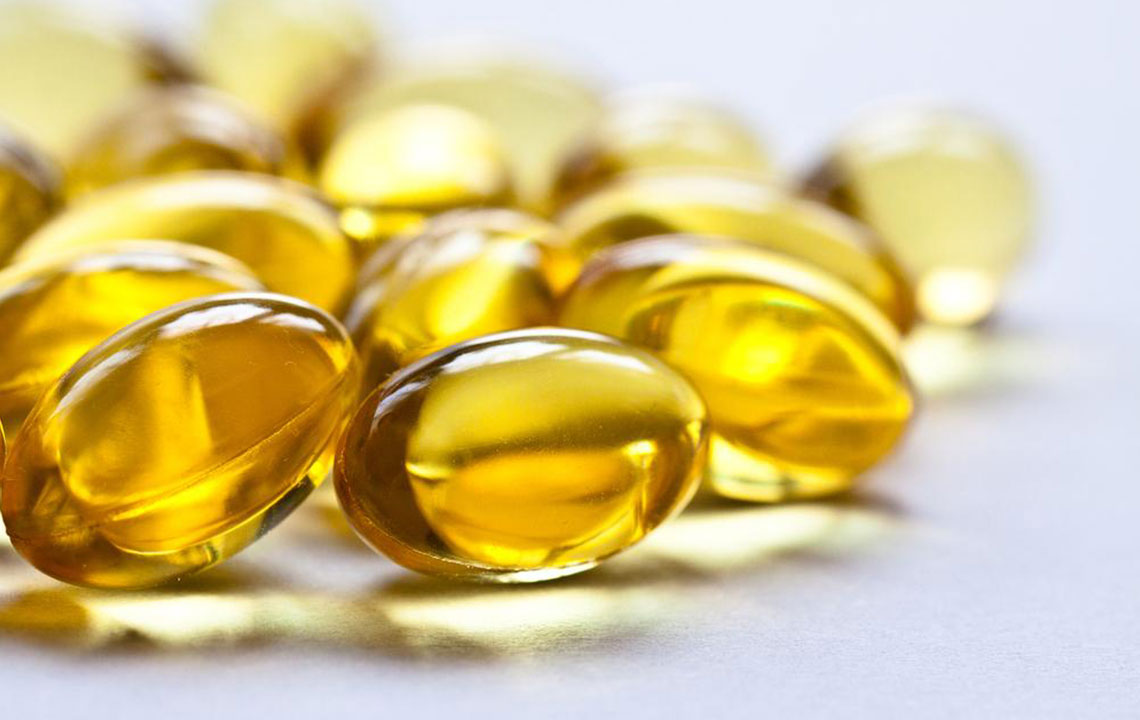Essential Foods Rich in Vitamin D to Boost Your Health Naturally
Discover the top foods that are rich in vitamin D, including fish, eggs, mushrooms, and fortified products. Learn how incorporating these into your diet can support bone health, boost immunity, and reduce disease risk. This comprehensive guide highlights practical dietary sources and health benefits, helping you achieve optimal vitamin D levels naturally and effectively.

Essential Foods Rich in Vitamin D to Boost Your Health Naturally
Vitamin D is a vital nutrient that plays a fundamental role in maintaining overall health and wellness. It is often referred to as the "sunshine vitamin" because our bodies can produce it when exposed to sunlight. However, relying solely on sunlight isn't always practical or sufficient, especially in certain geographic locations or during winter months. That’s why incorporating foods high in vitamin D into your daily diet is crucial for ensuring optimal health. This comprehensive guide explores seven nutrient-dense foods rich in vitamin D that can help you meet your daily requirements and support various bodily functions.
Why Is Vitamin D Important?
Vitamin D is indispensable for numerous physiological processes. Its primary function is to promote calcium absorption in the gut, which is essential for developing and maintaining healthy, strong bones and teeth. A deficiency in vitamin D can lead to bone disorders such as rickets in children and osteomalacia in adults. Beyond bone health, vitamin D plays a significant role in modulating the immune system, reducing inflammation, and supporting muscle function. Emerging research also suggests that adequate vitamin D levels may be associated with a reduced risk of chronic illnesses, including cardiovascular diseases, certain cancers, and autoimmune conditions.
Sources of Vitamin D: Why Food Matters
While sunlight remains the primary natural source of vitamin D, dietary sources are equally important, especially in less sunny climates. Consuming foods rich in vitamin D can help maintain optimal levels, prevent deficiencies, and support overall health. Here's a deep dive into some of the most potent and accessible dietary sources of vitamin D.
Including vitamin D-rich foods in your diet not only helps in strengthening bones and teeth but also supports immune health, enhances mood, and reduces disease risk. The following list highlights key foods that can easily be incorporated into your meals to boost your vitamin D intake.
Egg Yolks: Nature’s Vitamin D Source
Egg yolks are a potent natural source of vitamin D, providing approximately 10% of your daily requirement with just one large egg. Eating whole eggs ensures you gain the full spectrum of nutrients, including vitamin D, choline, and high-quality protein. For those seeking to increase their intake, consuming eggs regularly can contribute significantly to maintaining healthy vitamin D levels.
Mushrooms: The Plant-Based Vitamin D Supplier
Mushrooms are unique among plant foods because they can produce vitamin D when exposed to ultraviolet (UV) light. Specifically, UV-exposed portobello and maitake mushrooms can deliver up to 400 IU of vitamin D per cup. This makes them an excellent choice for vegetarians and vegans looking to meet their vitamin D needs naturally. It’s recommended to select UV-treated mushrooms or expose fresh mushrooms to sunlight for enhanced vitamin D content.
Other notable sources include:
Cheese: A Tasty Source of Vitamin D
Various cheeses, especially those that are aged, contain modest amounts of vitamin D. For example, an ounce of Swiss cheese supplies about 6 IU, and cheddar offers around 3 IU. While cheese alone isn’t a primary source of vitamin D, it can contribute to overall intake when combined with other foods.
Fatty Fish: Rich in Vitamin D and Essential Omega-3s
Fatty fish such as salmon, mackerel, sardines, and tuna are among the best dietary sources of vitamin D. A 3.5-ounce (100-gram) serving of cooked salmon can provide between 90 to 150% of your daily vitamin D needs. Tuna and mackerel also offer substantial amounts, typically around 200-300 IU per serving. Regular consumption of fatty fish not only ensures vitamin D intake but also supplies omega-3 fatty acids that support heart and brain health.
Fortified Foods: Enhancing Your Intake Easily
Many everyday products are fortified with vitamin D to help bridge the dietary gap. These include cereals, milk, yogurt, and orange juice. For instance, one cup of fortified milk can contain approximately 120 IU of vitamin D, while fortified cereals can vary depending on the brand. Orange juice fortified with vitamin D provides around 100 IU per serving. Incorporating these fortified products into your diet is a convenient way to boost your daily intake, especially for those with limited access to natural sources.
Beef Liver: A Nutrient-Dense Option
Although not as popular as other foods, beef liver is a powerhouse of nutrition, including a good amount of vitamin D. A 3.5-ounce (100-gram) serving offers approximately 50 IU of vitamin D, along with high levels of iron, copper, and vitamin A. Including liver occasionally in your diet can contribute to meeting your vitamin D needs while providing vital nutrients beneficial for overall health.
Cod Liver Oil: A Traditional and Potent Supplement
One of the most concentrated natural sources of vitamin D is cod liver oil. Just one tablespoon exceeds the daily vitamin D requirement, delivering around 1,000 IU or more. Additionally, it provides high levels of omega-3 fatty acids and vitamin A, making it a comprehensive supplement for immune support, skin health, and inflammation reduction. Since cod liver oil is rich in fat-soluble vitamins, it’s advisable to consult with a healthcare provider before adding it to your routine.
The Health Benefits of Consuming Vitamin D-Rich Foods
Incorporating foods high in vitamin D into your diet offers numerous health advantages. Primarily, it promotes strong bones and dental health by aiding calcium and phosphorus absorption. Adequate vitamin D levels have been associated with a lower risk of chronic diseases such as heart disease, certain cancers, and autoimmune disorders. Furthermore, vitamin D plays a critical role in mood regulation; deficiency is linked to depression and seasonal affective disorder. Immune health is also enhanced by vitamin D, which activates immune cells that defend against pathogens. As we age, maintaining sufficient vitamin D intake prevents muscle weakness and supports mobility. Achieving optimal vitamin D levels can be simply managed through a balanced diet, responsible sun exposure, and supplementation if necessary. Consulting with healthcare providers helps tailor individual needs and prevent deficiencies.





